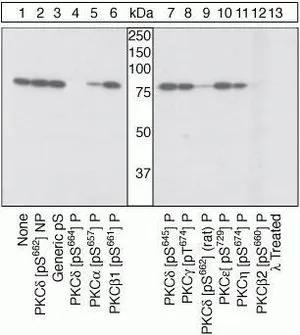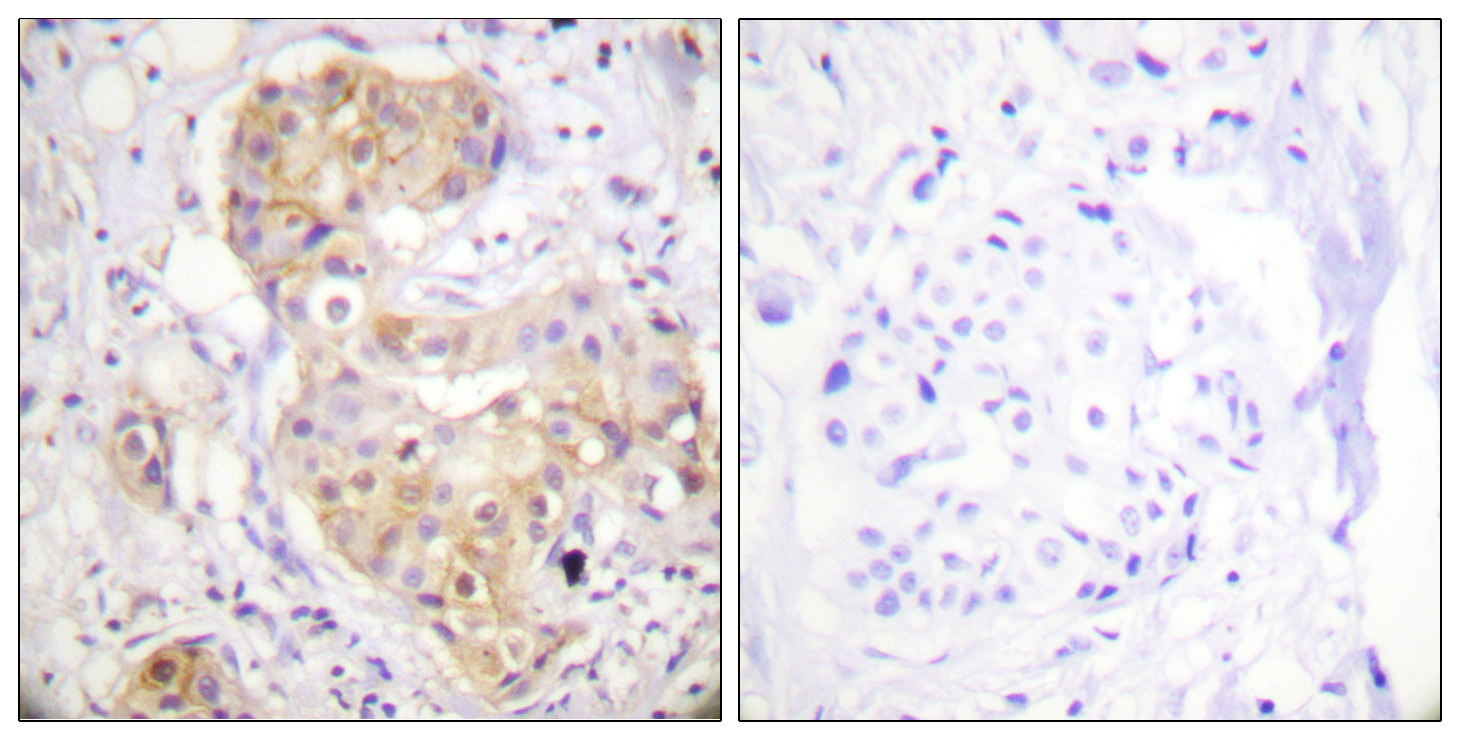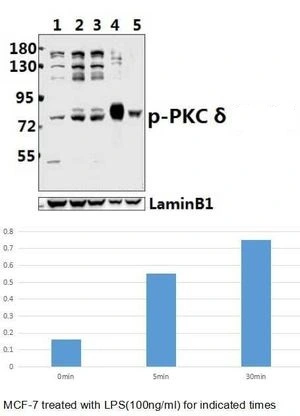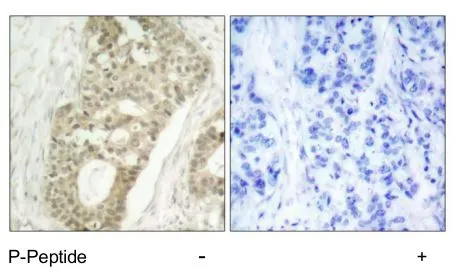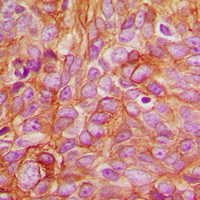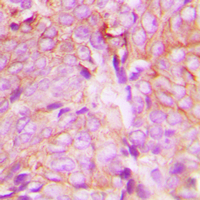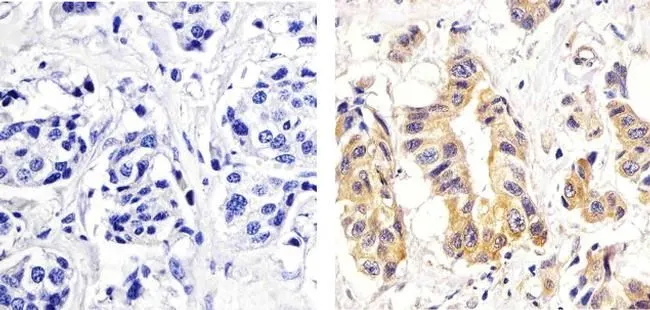
IHC-P analysis of human breast carcinoma tissue using GTX25658 PKC delta (phospho Ser664) antibody. Right : Primary antibody Left : Negative control without primary antibody Antigen retrieval : 10mM sodium citrate (pH 6.0), microwaved for 8-15 min Dilution : 1:20
PKC delta (phospho Ser664) antibody
GTX25658
ApplicationsWestern Blot, ImmunoHistoChemistry, ImmunoHistoChemistry Paraffin
Product group Antibodies
ReactivityHuman, Rat
TargetPRKCD
Overview
- SupplierGeneTex
- Product NamePKC delta (phospho Ser664) antibody
- Delivery Days Customer9
- Application Supplier NoteIHC-P: 1:10-1:50. *Optimal dilutions/concentrations should be determined by the researcher.Not tested in other applications.
- ApplicationsWestern Blot, ImmunoHistoChemistry, ImmunoHistoChemistry Paraffin
- CertificationResearch Use Only
- ClonalityPolyclonal
- ConjugateUnconjugated
- Gene ID5580
- Target namePRKCD
- Target descriptionprotein kinase C delta
- Target synonymsALPS3, CVID9, MAY1, PKCD, nPKC-delta, protein kinase C delta type, protein kinase C delta VIII, tyrosine-protein kinase PRKCD
- HostRabbit
- IsotypeIgG
- Protein IDQ05655
- Protein NameProtein kinase C delta type
- Scientific DescriptionThe protein encoded by this gene is a member of the protein kinase C family of serine- and threonine-specific protein kinases. The encoded protein is activated by diacylglycerol and is both a tumor suppressor and a positive regulator of cell cycle progression. Also, this protein can positively or negatively regulate apoptosis. Defects in this gene are a cause of autoimmune lymphoproliferative syndrome. [provided by RefSeq, Aug 2017]
- ReactivityHuman, Rat
- Storage Instruction-20°C or -80°C,2°C to 8°C
- UNSPSC12352203

